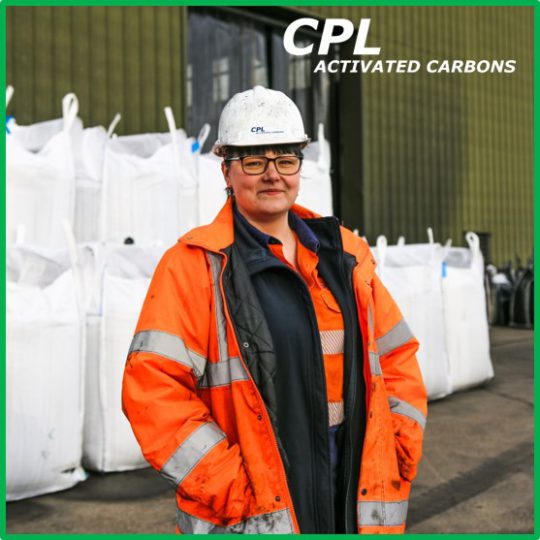Today is International Women’s Day 2023, so we are celebrating this annual event by profiling Katie Ramsden, who is Production Supervisor at our Carbon Reactivation facility in Immingham, North Lincolnshire.
Katie joined Puragen at the start of 2019 and, at the time, was the only female operator at our facility. Her organisational and management skills were quickly recognised and she was promoted to Production Supervisor in June 2021. Reporting to Operations Manager John Shadlock, Katie’s extensive responsibilities include production planning, logistics, health & safety, recruitment and project work.
Katie lives in nearby Grimsby with her husband and three-year-old son and, in her spare time, she enjoys travel and music, having an extensive vinyl collection and being a regular visitor to festivals and concerts.
Speaking about her role within Puragen, Katie said, “I really enjoy the variety that comes with supervising a busy production facility, and hope to progress to more senior management roles within the group in the future”.
We all agree Katie does an excellent job up at Immingham and wish to thank her for her key role in helping to facilitate our spent carbon reactivation business, which forms a key part of our growth strategy and is the backbone for our wider business success.
Activated carbon in used in many industrial processes for removing impurities from liquid and gas phase streams. Typical applications include drinking water purification, odour control, the abatement of VOCs, biogas upgrading and groundwater remediation. In most cases, when the carbon is spent and requires changeout, it can be recycled via thermal reactivation in a high temperature kiln. This is the process that takes place at Puragen Immingham, where we have separate facilities for handling spent carbon from drinking water (so-called ‘green list’) and industrial (‘amber list’) processes.
Recycling spent activated in this way, rather than disposing of it and replacing it with virgin (new) material, offers a carbon footprint saving in excess of 90%, so it makes sense from an environmental as well as economic point of view.

